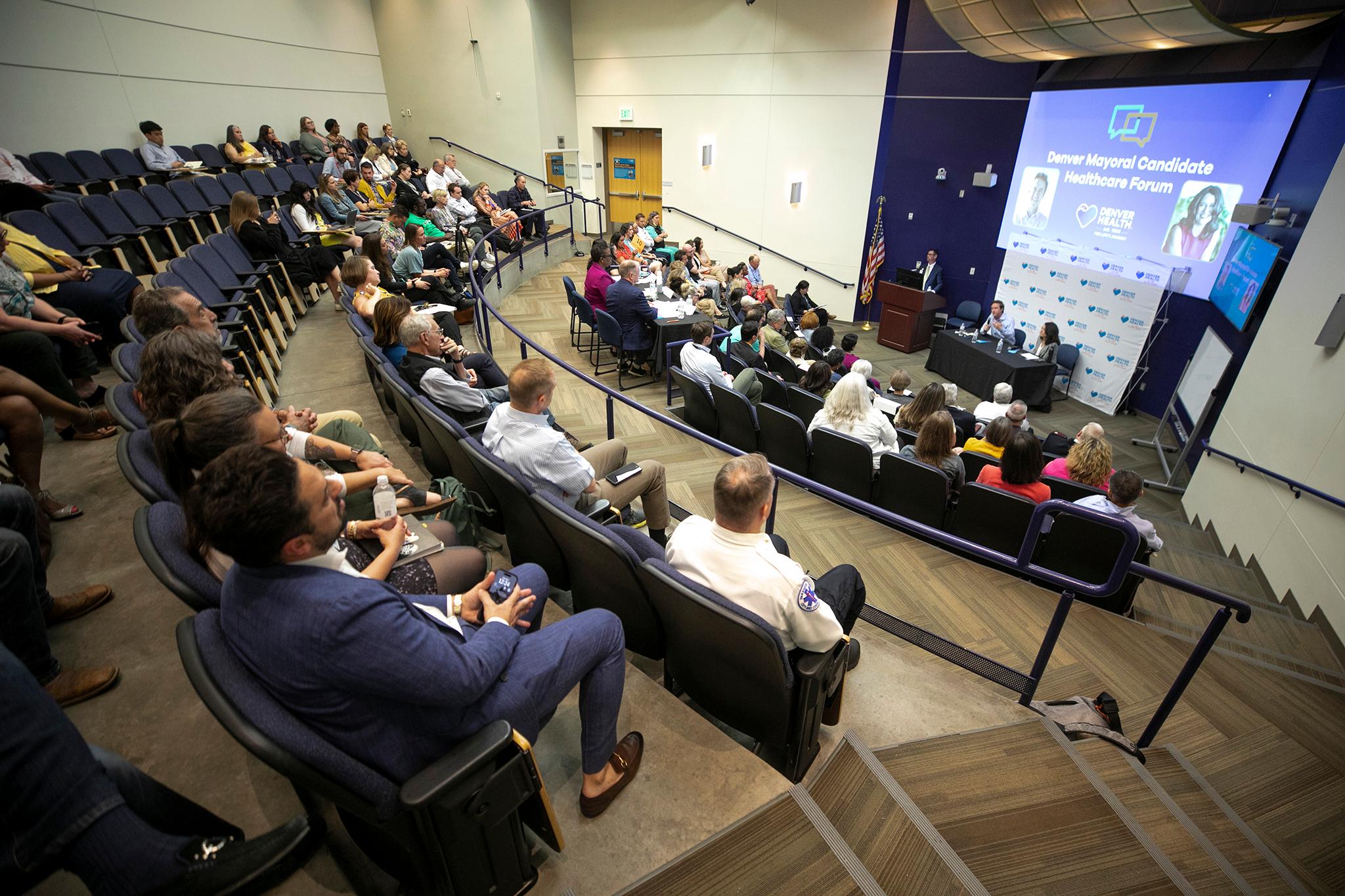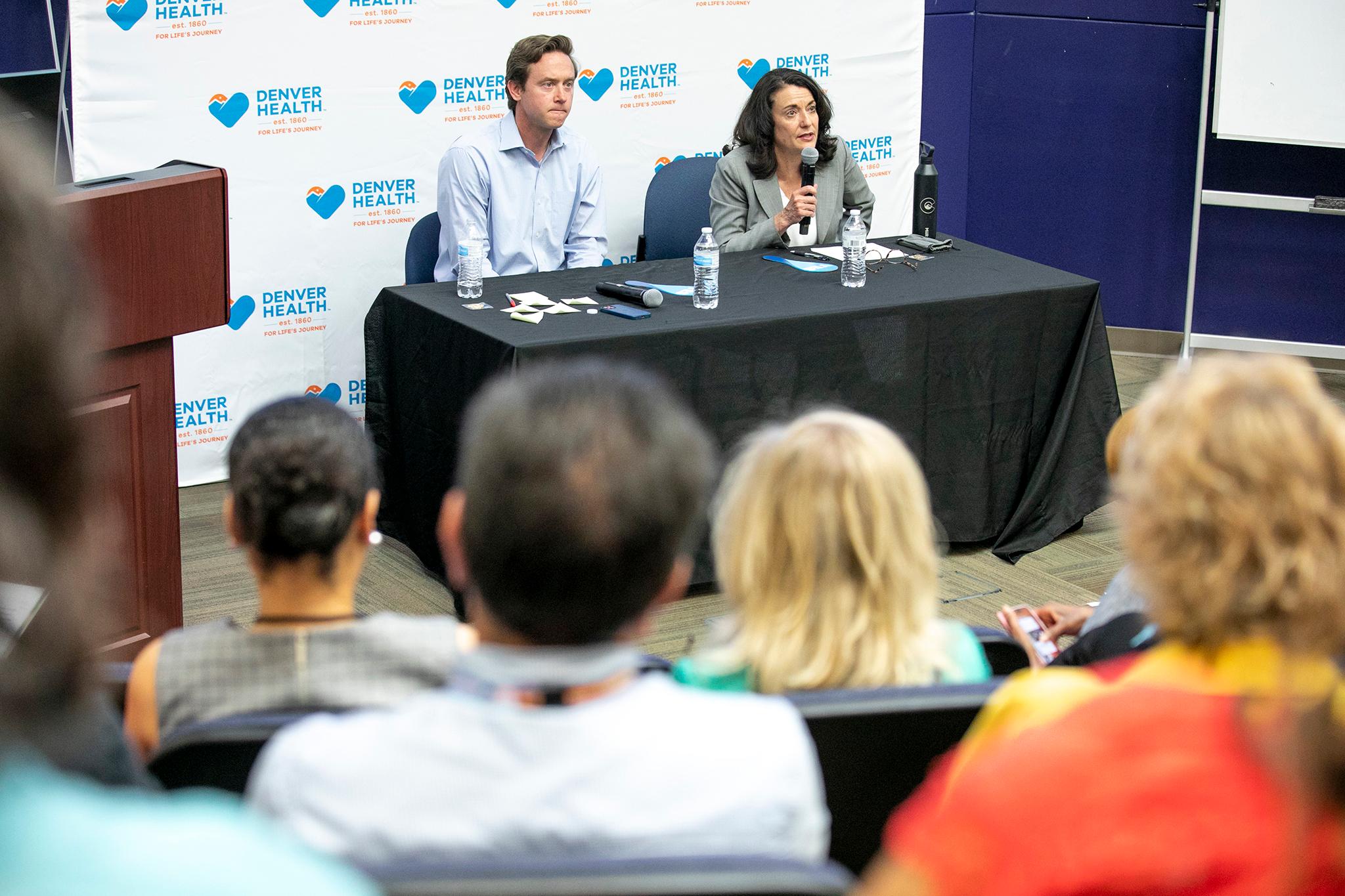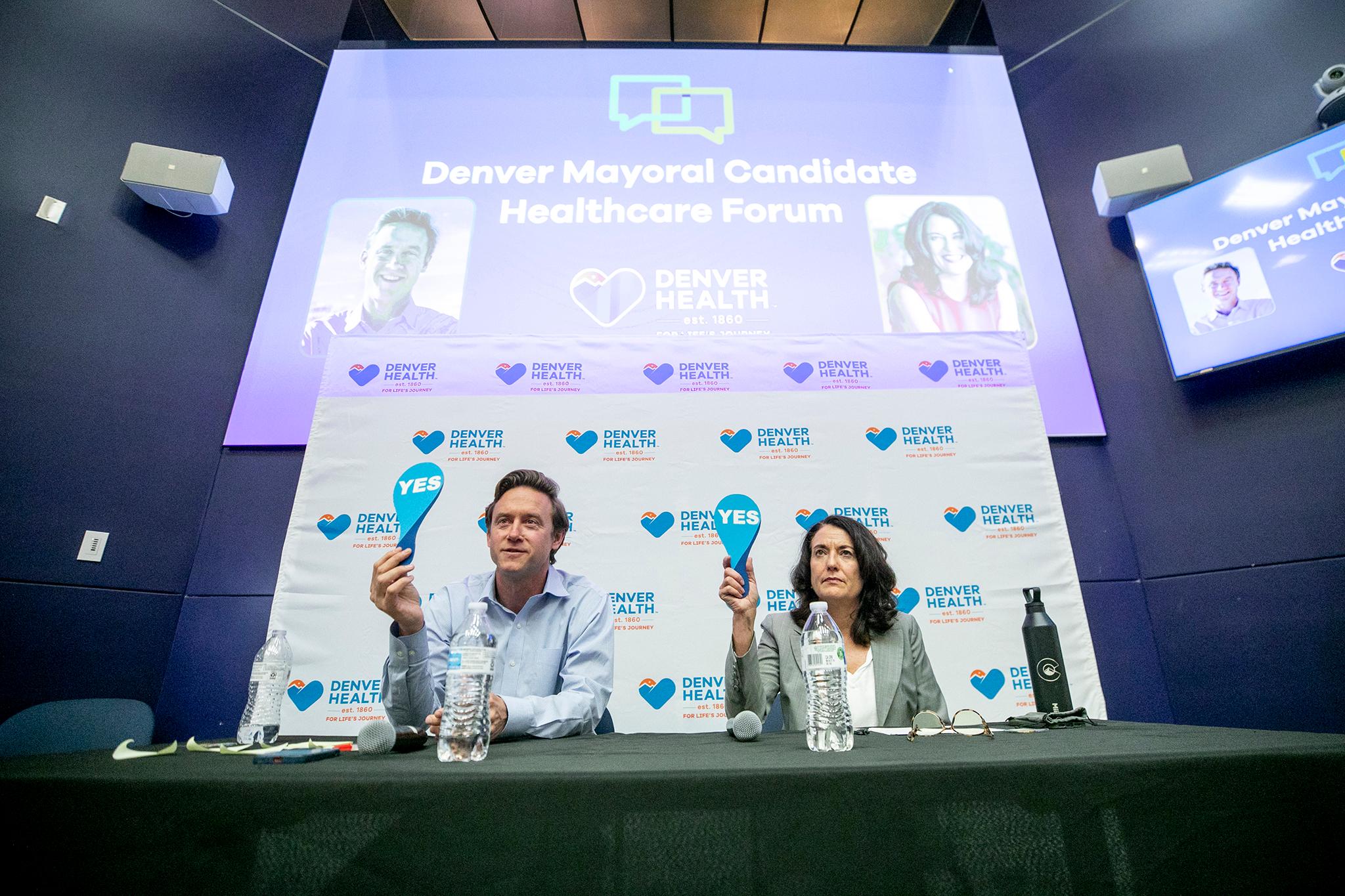A budget deficit of $120 million at Colorado's premier safety net hospital had candidates for Denver mayor promising to help during a debate at Denver Health held Friday.
Much of the focus was on treatment the hospital system provides but goes unpaid.
Candidates Kelly Brough and Mike Johnston were asked: Do you think the city should do more to cover uncompensated care costs for Denver Health?
Both held "yes" paddles high.
"All right, take a picture," said debate host Dr. Steve Federico, drawing a laugh.

The pair said a regional, state and federal approach is needed to solve the shortfall.
"We're gonna be challenged but committed to figuring it out," Brough told the crowd of mostly Denver Health employees, "Frankly the way we're gonna improve the living conditions for Denver residents is together and figuring out how we fund this, and keep you strong."
"I would want to pursue all the places that we can find additional funding to help fill that need," Johnston said. "That includes federal dollars, that includes state dollars, that includes regional dollars."

The big things driving the shortfall are unreimbursed expenses and high costs of caring for a rising number of health conditions.
The amount of treatment that went unpaid doubled after 2020. And a third of those patients come from outside the city.
"My job as mayor would be advocating to the state and to the rest of the region to say, 'We're delighted to be your care provider of last resort. But that means you have to share in some of the costs,'" Johnston said while acknowledging the issue is multi-faceted and that other leaders may not feel inclined or able to help as much as the hospital needs.
"We've got to figure it out. This is critical health care for our region, not just for the city of Denver," Brough said. "Uncompensated care has been an issue for a very long time for Denver Health and it is dire right now."
Denver Health's mission is to take care of everyone in the community, regardless of ability to pay.
"Unfortunately, on the heels of the pandemic, we've seen a growing number of people seeking healthcare without an ability to pay," said Federico, the hospital's chief government and community affairs officer.
Homelessness and housing are key issues in this year's mayor's race. And Federico said they're also a driver of spending for the Denver Health system.
"I think working together with the city to tackle that issue is gonna be crucial," he said.
He said the state did step up with about $6 million to help the hospital for now, but "when your gap is $120 million you need significantly more support than that."

The debate also touched on life expectancy, health disparities and other topics
The candidates faced a dizzying array of questions, from guns and opioids to hospital security and funding community health groups.
They also fielded a question about health disparities in cancer, heart disease and diabetes, which disproportionately impact racial-ethnic minority communities in Denver and in the state.
"The average life expectancy for people living in some Denver neighborhoods is as much as 12 years lower than that of people living in adjacent neighborhoods," said Denver Health Dr. Rocio Pereira, part of a panel asking questions.
She pressed the candidates about how they would address social determinants of health and the societal issues behind the health gaps, as well as how they would make improvements in neighborhoods.
Johnston focused on boosting early education, after-school and summer programs to get kids a good start, plus job training.
"I do think another critical part is how to close the gap on home ownership, which is a massive racial divide in the city. And that is the biggest driver in how we build wealth and pass on wealth," he said.
Education is key, Brough agreed, and said she has a detailed proposal on how to improve educational outcomes through Denver Public Schools.
"The sooner we can connect our kids to really quality education, we improve health outcomes and educational outcomes," she said.
Brough also spotlighted stable housing, "to build wealth in home ownership and to retain your home so you're not kicked out of it through gentrification," she said. "And I think we have to have a mayor who's willing to say, 'I can work across that entire spectrum.'"













